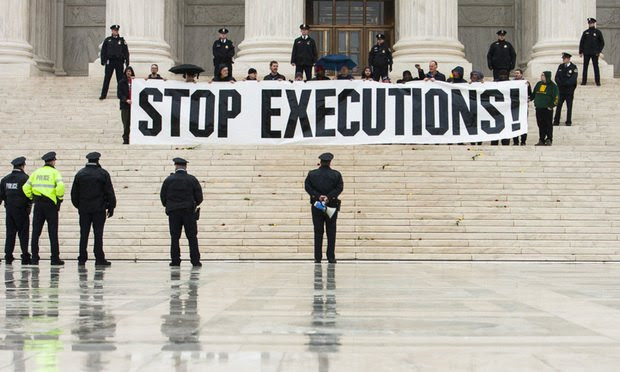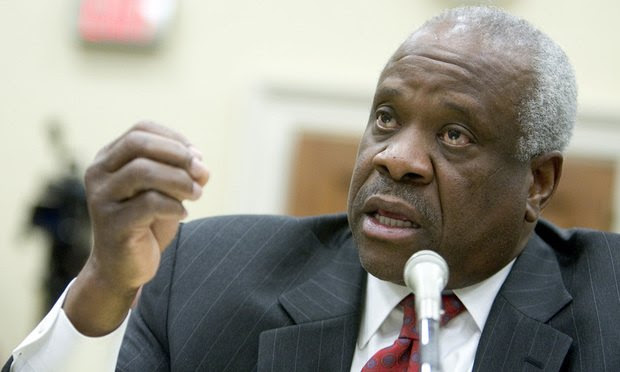Day 2 at Shorthanded SCOTUS | Justices Skirt Fee Fight in LGBT Case | Plus: Scenes from the Court
On deck at the Supreme Court for Day 2 with eight justices. Plus: the court declined to weigh into a legal-fee fight in a same-sex marriage case. This is NLJ's Supreme Court Brief.
October 02, 2018 at 07:00 AM
6 minute read
On the second day of the current eight-member Supreme Court, the justices are tackling two important cases that have not gotten enough attention. We offer a quick synopsis. Plus, the upshot of an angry attorney fee fight that the court disposed of on Monday—one of the hundreds of cert denials the court announced after its long conference last week. Thanks for reading! Contact us at [email protected] and [email protected].

Day 2 Docket Watch: Separation of Powers, Death Penalty
Okay, the general media consensus is that the new term of the U.S. Supreme Court is no blockbuster (yet). But today's arguments prove that the court's docket includes big cases that may be flying under the radar but shouldn't be. A quick preview:
➤➤ Gundy v. United States: This case spotlights an issue that has been dormant lately but becomes very relevant as the Trump administration dismantles the administrative state. We're talking about the non-delegation doctrine, a sleep-inducing name for a big-deal separation of powers question: should Congress be allowed to delegate its legislative powers to the executive branch?
The vehicle for a fresh look at this doctrine is an odd one, involving a provision of the Sex Offender Registration and Notification Act that delegates to the attorney general the power to issue certain regulations under the law.
Plaintiff Herman Gundy ran afoul of the regs and his lawyer New York federal defender Sarah Baumgartel appealed, hitting the high court with four different reasons why it should take up his appeal. But the court picked only one to granted review on: non-delegation, a clear sign that the court is ready to tackle the doctrine.
Conservative groups are not ordinarily keen on helping sex offenders, but they have piled on with amicus briefs in favor of Gundy. Liberals are on his side too. Stanford Law School profs Jeffrey Fisher and Pamela Karlan are on Gundy's brief, though Baumgartel will argue on his behalf. Deputy Solicitor General Jeffrey Wall will arguethat SORNA does not violate the non-delegation doctrine.
Why it matters: “Herman Gundy was punished for violating a law that no legislature enacted. He now stands convicted of a crime based on the attorney general's whim. Few insults to the principles of a free society could be greater.” Cato Institute's Ilya Shapiro wrote in an amicus brief.
➤➤ Madison v. Alabama: This is the case that will remind everyone how important the departure of Justice Anthony Kennedy in July was. Kennedy was not a death penalty abolitionist, but he did chip away at it by excluding certain categories of defendants from capital punishment.
Vernon Madison's case could fit right in with Kennedy's approach to the death penalty, but without him on the bench, the outcome is iffy. Madison killed a police officer in Alabama in 1985 and was sentenced to death. But after several strokes and other medical problems, Madison has severe dementia and cannot remember his crime.
His appeals have gone up and down the court system, including the Supreme Court which ruled against him in a per curiam decision in 2017. But the circumstances for his case's return visit today are different, invoking the Eighth Amendment rather than AEDPA. It could be a test of the “evolving standards of decency” rationale in Ford v. Wainwright, the key precedent in Madison's case dating back to 1986.
Bryan Stevenson, the famed author, TED Talk speaker and executive director of the Equal Justice Initiative, will argue for Madison. It will be Stevenson's fourth Supreme Court argument, and his first since 2011. Representing Alabama is the state's deputy attorney general Thomas Govan Jr.
Bottom line: “Executing Mr. Madison would implicate society's and the Eighth Amendment's aversion to grotesque and obscene punishments,” Stevenson wrote in Madison's brief.

Justices Steer Clear of Attorney Fee Fight in Arkansas Same-Sex Marriage Case
It was a clear win in June 2017 when Marisa Pavan's lawyers persuaded the Supreme Court that Arkansas could no longer refuse to list both same-sex parents of newborn children on birth certificates.
The per curiam ruling in Pavan v. Smith was praised as an important follow-up to the landmark 2015 Obergefell v. Hodges decision declaring that same-sex couples are entitled to be married under the same “terms and conditions” as opposite-sex couples.
Under federal fee-shifting rules in civil rights cases, that would have meant that Pavan and other plaintiffs in the case were entitled to an estimated total of $220,000 in legal fees from the state as a matter of course.
But the Arkansas Supreme Court did not see it that way, refusing to grant the fee award without explanation. Pavan appealed to the U.S. Supreme Court, and Arkansas fired back, claiming that the Arkansas Supreme Court's fee denial was proper and based on state grounds. Douglas Hallward-Driemeier (above), a partner at Ropes & Gray who won the 2017 case Pavan v. Smith, filed the cert petition.
It was a squabble that the U.S. Supreme Court apparently was eager to avoid. The justices denied certiorari on Monday. The result of that denial is that Ropes & Gray will get zero dollars for its work on the case. And that in turn means zero dollars for the National Center for Lesbian Rights. Ropes & Gray had planned to turn over its fee recovery with that organization.

In Case You Missed It
>> Justices Clarence Thomas and Ruth Bader Ginsburg now flank Chief Justice John Roberts Jr. on the eight-justice bench.
>> Bill Cosby on Monday lost his bid in the Supreme Court to stop a California defamation case.
>> Laurence Tribe makes the case for Kavanaugh recusals at the high court, if he is confirmed.
>> Harvard Law School's once cozy relationship with Kavanaugh, who was hired to teach at the school back when U.S. Supreme Court Justice Elena Kagan was its dean, has turned toxic.
Thanks for reading Supreme Court Brief. Contact us at [email protected] and [email protected].
This content has been archived. It is available through our partners, LexisNexis® and Bloomberg Law.
To view this content, please continue to their sites.
Not a Lexis Subscriber?
Subscribe Now
Not a Bloomberg Law Subscriber?
Subscribe Now
NOT FOR REPRINT
© 2025 ALM Global, LLC, All Rights Reserved. Request academic re-use from www.copyright.com. All other uses, submit a request to [email protected]. For more information visit Asset & Logo Licensing.
You Might Like
View All
Court Overturns $185M Fee Award for Quinn Emanuel in ACA Litigation

The Supreme Court Leaker That Never Was | This Term's 1st Opinion | Attorney-Client Privilege
9 minute read
Who's Arguing at the Lectern | Union-Busted Cement Trucks | Emergency Application Catch Up
9 minute read
Is It Legal Advice or Business Advice? | What Chief Justice John Roberts Didn't Say
Trending Stories
- 1We the People?
- 2New York-Based Skadden Team Joins White & Case Group in Mexico City for Citigroup Demerger
- 3No Two Wildfires Alike: Lawyers Take Different Legal Strategies in California
- 4Poop-Themed Dog Toy OK as Parody, but Still Tarnished Jack Daniel’s Brand, Court Says
- 5Meet the New President of NY's Association of Trial Court Jurists
Who Got The Work
J. Brugh Lower of Gibbons has entered an appearance for industrial equipment supplier Devco Corporation in a pending trademark infringement lawsuit. The suit, accusing the defendant of selling knock-off Graco products, was filed Dec. 18 in New Jersey District Court by Rivkin Radler on behalf of Graco Inc. and Graco Minnesota. The case, assigned to U.S. District Judge Zahid N. Quraishi, is 3:24-cv-11294, Graco Inc. et al v. Devco Corporation.
Who Got The Work
Rebecca Maller-Stein and Kent A. Yalowitz of Arnold & Porter Kaye Scholer have entered their appearances for Hanaco Venture Capital and its executives, Lior Prosor and David Frankel, in a pending securities lawsuit. The action, filed on Dec. 24 in New York Southern District Court by Zell, Aron & Co. on behalf of Goldeneye Advisors, accuses the defendants of negligently and fraudulently managing the plaintiff's $1 million investment. The case, assigned to U.S. District Judge Vernon S. Broderick, is 1:24-cv-09918, Goldeneye Advisors, LLC v. Hanaco Venture Capital, Ltd. et al.
Who Got The Work
Attorneys from A&O Shearman has stepped in as defense counsel for Toronto-Dominion Bank and other defendants in a pending securities class action. The suit, filed Dec. 11 in New York Southern District Court by Bleichmar Fonti & Auld, accuses the defendants of concealing the bank's 'pervasive' deficiencies in regards to its compliance with the Bank Secrecy Act and the quality of its anti-money laundering controls. The case, assigned to U.S. District Judge Arun Subramanian, is 1:24-cv-09445, Gonzalez v. The Toronto-Dominion Bank et al.
Who Got The Work
Crown Castle International, a Pennsylvania company providing shared communications infrastructure, has turned to Luke D. Wolf of Gordon Rees Scully Mansukhani to fend off a pending breach-of-contract lawsuit. The court action, filed Nov. 25 in Michigan Eastern District Court by Hooper Hathaway PC on behalf of The Town Residences LLC, accuses Crown Castle of failing to transfer approximately $30,000 in utility payments from T-Mobile in breach of a roof-top lease and assignment agreement. The case, assigned to U.S. District Judge Susan K. Declercq, is 2:24-cv-13131, The Town Residences LLC v. T-Mobile US, Inc. et al.
Who Got The Work
Wilfred P. Coronato and Daniel M. Schwartz of McCarter & English have stepped in as defense counsel to Electrolux Home Products Inc. in a pending product liability lawsuit. The court action, filed Nov. 26 in New York Eastern District Court by Poulos Lopiccolo PC and Nagel Rice LLP on behalf of David Stern, alleges that the defendant's refrigerators’ drawers and shelving repeatedly break and fall apart within months after purchase. The case, assigned to U.S. District Judge Joan M. Azrack, is 2:24-cv-08204, Stern v. Electrolux Home Products, Inc.
Featured Firms
Law Offices of Gary Martin Hays & Associates, P.C.
(470) 294-1674
Law Offices of Mark E. Salomone
(857) 444-6468
Smith & Hassler
(713) 739-1250






